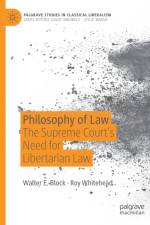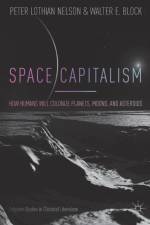- The Case for Privatizing Oceans, Rivers, Lakes, and Aquifers
av Walter E. Block & Peter L. Nelson
569,-
Water covers some 75% of the earth's surface, while land covers 25%, approximately. Yet the former accounts for less than 1% of world GDP, the latter 99% plus. Part of the reason for this imbalance is that there are more people located on land than water. But a more important explanation is that while land is privately owned, water is unowned (with the exception of a few small lakes and ponds), or governmentally owned (rivers, large lakes). This gives rise to the tragedy of the commons: when something is unowned, people have less of an incentive to care for it, preserve it, and protect it, than when they own it. As a result we have oil spills, depletion of fish stocks, threatened extinction of some species (e.g. whales), shark attacks, polluted and dried-up rivers, misallocated water, unsafe boating, piracy, and other indices of economic disarray which, if they had occurred on the land, would have been more easily identified as the result of the tragedy of the commons and/or government ownership and mismanagement. The purpose of this book is to make the case for privatization of all bodies of water, without exception. In the tragic example of the Soviet Union, the 97% of the land owned by the state accounted for 75% of the crops. On the 3% of the land privately owned, 25% of the crops were grown. The obvious mandate requires that we privatize the land, and prosper. The present volume applies this lesson, in detail, to bodies of water.













